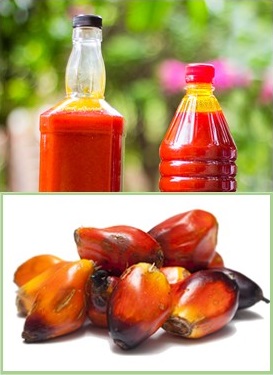By: Modupe Adeniyi. Freelance Health Reporter.

Red palm oil and palm kernel
FRIDAY, SEPTEMBER 06, 2024. The Food and Drugs Authority (FDA) of Ghana has recently issued a warning to the public regarding the adulteration of palm oil with Sudan IV dye. This cautionary message comes in response to ongoing concerns about the use of this banned substance in palm oil products available in the market. Roderick Daddey-Adjei, the Deputy Chief Executive Officer of the FDA, emphasized the serious public health risk posed by this practice.
Sudan IV is a fat-soluble chemical dye used commercially in the production of textiles, leather, plastics, papers, hair products, mineral oils, waxes and cosmetics to impart color. However, its use as a food additive is strictly prohibited due to its harmful effects on human health. The International Agency for Research on Cancer has identified Sudan IV dye as both carcinogenic and mutagenic, making it extremely dangerous for human consumption.
Why Sudan IV is Added to Palm Oil
Despite the ban, some unscrupulous traders continue to use Sudan IV dye in palm oil. Their motivation stems from the dye's ability to enhance the color of crude palm oil, which often loses its characteristic orange-red hue due to the use of poor-quality palm fruits and substandard production methods. By adding the dye, traders aim to make their product more visually appealing to consumers.
The health risks associated with consuming Sudan IV dye are severe and wide-ranging. Individuals who ingest products containing this substance may experience migraines, severe allergies, hives and hyperactivity in children. Most alarmingly, the dye has been linked to an increased risk of cancer.
Recent data from the FDA Ghana paints a concerning picture of the prevalence of this issue. In 2021, a nationwide Sudan IV dye test revealed a 30% increase in adulterated palm oil compared to a 7.3% record in 2018. More recently, in October 2023, tests conducted on palm oil samples from major markets across Ghana showed that 70 out of 306 samples failed the test for Sudan IV dye. The Greater Accra region recorded the highest failure rate at 60.8%, while all regions except the Upper West Region had at least one sample test positive for the dye.
These findings underscore the importance of consumer vigilance when purchasing palm oil. The FDA's warning serves as a crucial reminder for the public to be aware of the potential risks and to exercise caution. As consumers, we must remain informed and proactive in protecting our health by being mindful of the products we buy and consume.
Tips on Purchasing Palm Oil
In light of this information, it is advisable to purchase palm oil from reputable sources and to be wary of products that appear unnaturally vibrant in color. If you suspect that a palm oil product may be adulterated, it is best to err on the side of caution and avoid its use. By staying informed and making conscious choices, we can contribute to the efforts to combat food adulteration and safeguard public health.
Source: Ghana Web
Published: September 6, 2024
© 2024. Datelinehealth Africa Inc. All rights reserved.
Permission is given to copy, use and share content for non-commercial purposes without alteration or modification and subject to source attribution.
DATELINEHEALTH AFRICA INC., is a digital publisher for informational and educational purposes and does not offer personal medical care and advice. If you have a medical problem needing routine or emergency attention, call your doctor or local emergency services immediately, or visit the nearest emergency room or the nearest hospital. You should consult your professional healthcare provider before starting any nutrition, diet, exercise, fitness, medical or wellness program mentioned or referenced in the DatelinehealthAfrica website. Click here for more disclaimer notice.